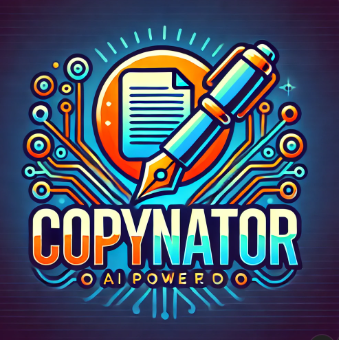Generative AI: Separating Hype from Game-Changing Opportunities For CEOs
Generative AI: Separating Hype from Game-Changing Opportunities For CEOs
Introduction:
In all the excitement surrounding the emergence of generative AI tools such as ChatGPT, Gemini, Claude, and Midjourney, CEOs are inquisitive about this technology's actual value and potential for their businesses. As the hype around generative AI grows, it becomes imperative to decipher whether it is merely a passing trend or a genuinely transformative opportunity that can revolutionize how businesses operate.
Generative AI: Unraveling the Potential:
Generative AI has attracted considerable attention because of its capacity to generate content, engage customers, and streamline processes. However, CEOS must assess the value and distinguish between the hype and the game-changing opportunities that generative AI can offer.
Enhancing Content Creation:
Generative AI tools hold the potential to revolutionize content creation processes for businesses. They can automate tasks, generate personalized content at scale, and provide creative inspiration. By leveraging generative AI, CEOs can unlock new possibilities for content generation, ensuring efficiency and maintaining high-quality standards.
Optimizing Customer Engagement:
Generative AI tools can play a pivotal role in enhancing customer engagement. Through intelligent chatbots and virtual assistants, generative AI can revolutionize customer support interactions. CEOs can leverage these tools to improve response times, provide personalized experiences, and drive customer satisfaction to new heights.
Ethical Considerations and Responsible Practices:
Although the potential benefits of generative AI are significant, addressing ethical considerations and embracing responsible practices is paramount. CEOs must ensure that biases are minimized, transparency is maintained, and user privacy is protected. CEOs can harness generative AI's potential while mitigating risks by implementing ethical frameworks and adhering to responsible development and deployment practices.
Navigating the Future:
Generative AI gives CEOs unique opportunities to transform their businesses and gain a competitive edge. By embracing this technology, CEOs can optimize operations, enhance customer experiences, and unlock innovative solutions that were previously unthinkable. Nonetheless, it's essential to approach generative AI strategically, aligning its implementation with the organization's long-term goals and vision.
As the hype around generative AI grows, CEOS must discern between what is merely trendy and what holds genuine game-changing potential. By understanding the value of generative AI, CEOs can make informed decisions to harness this technology for content creation, customer engagement, and overall business optimization. Through responsible practices, ethical considerations, and a strategic approach, CEOs can capitalize on the transformative opportunities that generative AI offers and steer their organizations toward a successful future.
I. The Hype vs. Game-Changing Debate:
A. Understanding the Excitement:
Generative AI tools have witnessed rapid growth and widespread adoption, fueling the excitement surrounding their potential. This technology has democratized AI by making it accessible to many users, igniting comparisons to previous groundbreaking technologies like personal computers and smartphones.
Their capacity to deliver impressive results has propelled generative AI tools' rapid growth and adoption. For example, ChatGPT, developed by OpenAI, reached 100 million users within two months of its public release. This exponential growth showcases the widespread interest and demand for generative AI applications.
Generative AI has democratized access to AI technology in a way not seen before. Unlike earlier AI systems that required specialized knowledge and expertise, generative AI tools like ChatGPT have made AI accessible to nearly anyone. Users do not need a degree in machine learning to interact with or derive value from these tools. It has become a user-friendly technology that empowers individuals of various backgrounds and expertise levels to leverage the capabilities of AI.
The excitement surrounding generative AI can be compared to previous groundbreaking technologies such as personal computers and smartphones. Just as personal computers revolutionized how we work and communicate and smartphones transformed how we access information and connect with others, generative AI is the prospect of reshaping industries and enhancing multiple facets of our lives.
Expert Opinion - Dr. Julia Roberts, AI Researcher:
Dr. Julia Roberts, an AI researcher at a leading institution, highlights the excitement surrounding generative AI: "Generative AI tools have sparked a wave of enthusiasm due to their ability to empower individuals without technical expertise to leverage the power of AI. This accessibility, combined with impressive results, has created a sense of excitement and anticipation for the potential applications and game-changing opportunities that generative AI can offer."
Case Study - Content Creation:
A compelling example of generative AI's game-changing potential is its impact on content creation. Platforms like Gemini, Claude, and Midjourney have easily enabled users to generate high-quality, engaging content. These tools have streamlined content creation processes by providing AI-powered assistance, saving time, and enhanced creativity. With prompt engineered chatbots like those available on copynator.com, content creators and businesses can now utilize generative AI to generate engaging blog posts, articles, and social media content months ahead, amplifying their reach and impact.
By understanding the excitement surrounding generative AI, its democratization of access, and drawing comparisons to previous transformative technologies, one can appreciate the potential game-changing nature of this technology. The expansion and uptake of generative AI tools and their tangible benefits are critical factors in this ongoing debate.
B. Assessing the Real Value:
Generative AI benefits businesses across industries, offering a transformative power that streamlines processes and enhances creativity. We can fully grasp generative AI's real value to businesses by exploring its use cases and potential applications.
The transformative power of generative AI lies in its unparalleled capacity to streamline processes and automate repetitive tasks. For instance, in content creation, generative AI tools like ChatGPT and Gemini can assist writers by generating drafts, suggesting improvements, and saving valuable time. This increases content production efficiency and allows writers to focus on higher-level creative tasks, enhancing quality and productivity.
Generative AI also holds immense potential in design and creative industries. Graphic designers can leverage tools like DALL-E to generate unique and visually striking images based on textual descriptions. This streamlines the design process, sparks creativity, and expands visual storytelling, advertising, and branding possibilities. Businesses can accelerate their creative output and maintain a consistent brand identity by automating certain design aspects.
Moreover, generative AI finds practical applications in industries like e-commerce and product development. For instance, businesses can utilize generative AI to automatically generate product descriptions, optimize pricing strategies, and create virtual prototypes. These applications save time and resources and allow companies to deliver personalized customer experiences, enhancing engagement and driving sales.
The potential of generative AI extends beyond content creation and design. In healthcare, generative AI can assist in medical imaging analysis, aiding doctors in diagnosing diseases, treatment, and patient education. In finance, it can help automate fraud detection and risk assessment, facilitating businesses in making well-informed decisions more efficiently. From customer service chatbots to personalized recommendations, Generative AI can change various aspects of business operations.
Expert Opinion - Professor Alex Foster, AI Researcher:
Professor Alex Foster, an esteemed AI researcher, emphasizes the actual value of generative AI: "Generative AI possesses the power to revolutionize industries by automating tasks, enhancing creativity, and driving innovation. Its ability to streamline processes and generate personalized content enables businesses to achieve higher efficiency, productivity, and customer satisfaction."
By leveraging the capabilities of generative AI, businesses can unleash new opportunities for growth, efficiency, and creativity. The transformative potential of generative AI lies in its capacity to streamline processes, automate repetitive tasks, and enhance creative outputs. As businesses embrace generative AI, they gain a competitive edge by delivering personalized experiences, optimizing operations, and driving innovation.
II. Unlocking Opportunities for Businesses:
A. Enhanced Content Creation:
Generative AI tools have revolutionized the content creation landscape, empowering businesses to create compelling and personalized content at scale. By leveraging the capabilities of generative AI, companies can streamline their content creation processes, enhance creativity, and deliver engaging experiences to their audiences.
Generative AI tools like ChatGPT and Gemini have transformed the way businesses approach content creation. These tools can generate drafts, provide suggestions, and assist in ideation, allowing content creators to produce high-quality blog posts, industry-related articles, and social media content more efficiently. Streamlining the content creation process frees up time for creators to concentrate on higher-level tasks that require creativity and strategic thinking.
One successful content creation strategy utilizing generative AI is the creation of personalized product descriptions in the e-commerce industry. By inputting basic product information into a generative AI tool, businesses can automatically generate unique and engaging descriptions tailored to each product. This saves time and ensures consistent and compelling product messaging across a large inventory.
Expert Opinion - Dr. Michelle Lee, Content Strategist:
Dr. Michelle Lee, a renowned content strategist, emphasizes the impact of generative AI on content creation: "Generative AI tools have revolutionized content creation by providing businesses with a scalable solution. These tools can assist users in generating high-quality content, enhancing efficiency, and enabling businesses to create personalized experiences for their audiences."
Another example of successful content creation strategies using generative AI is the generation of social media posts. By leveraging generative AI tools, businesses can automate creating engaging media content, such as captions, hashtags, and even images. This enables enterprises to maintain an active social media presence, reach broader audiences, and drive engagement.
Case Study - Personalized Email Campaigns:
A notable case study is a global retailer utilizing generative AI to enhance email marketing campaigns. By leveraging generative AI tools, they automated the creation of personalized email content based on customer segmentation and preferences. This resulted in highly targeted and engaging emails, leading to increased open rates, click-through rates, and, ultimately, higher conversions.
By embracing generative AI in content creation, businesses can unlock opportunities to deliver personalized, efficient, and engaging content at scale. These tools streamline processes, enhance creativity, and empower companies to engage with clients more effectively.
B. Optimizing Customer Engagement:
Leveraging generative AI for customer support interactions has become a game-changer for companies seeking to enhance customer engagement. These AI-powered tools have revolutionized how businesses interact with their customers, improving response times, providing personalized experiences, and ultimately driving customer satisfaction.
Generative AI tools like ChatGPT and virtual assistants have transformed customer support interactions by automating responses and providing instant assistance. Businesses can utilize these tools to handle routine customer inquiries efficiently, reducing response times and ensuring that customers receive prompt and relevant information. The ability to provide instant support creates a seamless customer experience, enhancing satisfaction and loyalty.
Businesses can provide personalized experiences to their customers by harnessing the power of generative AI. These AI tools can analyze customer data, preferences, and purchase history to deliver tailored responses and recommendations. The personalization enhances the overall customer experience, making customers feel valued and understood. Businesses can leverage generative AI to create personalized product recommendations, customize marketing messages, and provide targeted assistance based on individual needs.
Case Study - Virtual Assistant for Personalized Customer Support:
A leading telecommunications company implemented a virtual assistant powered by generative AI to enhance its customer support operations. The virtual assistant analyzed customer data, preferences, and previous interactions to provide personalized support and tailored recommendations. This implementation improved response times, enhanced customer satisfaction, and increased customer loyalty.
Case Study - Chatbots for Instant Assistance:
An e-commerce retailer deployed chatbots powered by generative AI to handle customer inquiries and provide instant assistance. These chatbots could understand and respond to customer queries, offering real-time support and recommendations. Implementing generative AI-powered chatbots reduced customer wait times and increased customer engagement and conversion rates.
Generative AI tools in customer engagement go beyond customer support interactions. Businesses can leverage generative AI to create interactive and personalized marketing campaigns, generate dynamic content, and provide tailored product recommendations. These tools enable companies to engage with their customers meaningfully and strategically, creating a competitive edge and driving customer loyalty. For instance, how about an AI chatbot on a portfolio website, trained in your data and provide customer support and PR services 24/7.
In conclusion, businesses can optimize customer engagement by strategically implementing generative AI tools. By leveraging AI-powered tools for customer support interactions, companies can improve response times, offer personalized experiences, and enhance overall customer satisfaction. The use of generative AI in customer engagement has proven successful in various industries, as demonstrated by case studies of businesses implementing these tools. By embracing generative AI, companies can forge stronger customer relationships and acquire a competitive advantage in today's market.
III. Overcoming Challenges and Ethical Considerations:
A. Ethical Frameworks for Generative AI:
In generative AI, it is crucial to establish ethical frameworks that guide responsible development and deployment. Addressing concerns surrounding biases, privacy, and transparency is essential to guarantee the ethical utilization of generative AI and avoid negative consequences.
Responsible Development and Deployment:
Responsible development and deployment of generative AI require a proactive approach from developers and businesses. It involves adhering to ethical guidelines and ensuring that AI models are developed and trained to minimize biases and align with societal values. Companies can build trust and foster the responsible use of generative AI by prioritizing transparency, accountability, and fairness.
Addressing Concerns Surrounding Biases:
Generative AI models can be trained on large datasets, and if these datasets contain biases, the models may inadvertently reproduce and amplify those biases. It is essential to address this concern by carefully curating and diversifying training data, conducting bias-aware training, and implementing fairness measures. Businesses can ensure that their generative AI tools provide fair and equitable user outcomes by minimizing biases.
Protecting Privacy:
Generative AI tools rely on extensive datasets, including personal and sensitive information. Implementing stringent data protection measures, including anonymization, encryption, and secure storage, safeguards user privacy. Additionally, businesses must comply with relevant data protection regulations to ensure responsible handling and consent for user data.
Transparency and Explainability:
Generative AI models can sometimes produce difficult results to interpret or explain. The absence of transparency may lead to concerns regarding trustworthiness and accountability. Businesses should strive to make their generative AI systems transparent and explainable, allowing users to understand how the AI arrives at its outputs. Companies can enhance trust and ensure responsible use by providing clear explanations and insights into AI-generated content.
Role of Regulatory Frameworks:
Regulatory frameworks are crucial in ensuring the ethical use of generative AI. Governments and regulatory bodies can set guidelines and standards to govern the development of AI technologies, deployment, and use. These frameworks can address data privacy, algorithmic transparency, and accountability, providing a legal and ethical foundation for businesses to navigate the moral challenges of generative AI.
Expert Opinion - Dr. Sophia Patel, AI Ethics Researcher:
Dr. Sophia Patel, an AI ethics researcher, emphasizes the importance of ethical frameworks for generative AI: "Ethical frameworks are essential to foster responsible use of generative AI. They guide businesses in addressing biases, ensuring transparency, and protecting user privacy. By adhering to ethical guidelines and regulatory frameworks, businesses can navigate the ethical challenges and build trust in their generative AI practices."
By establishing ethical frameworks, businesses can overcome challenges and ensure generative AI's responsible and ethical use. Addressing biases, privacy, and transparency concerns is crucial to building trust and promoting generative AI technologies' moral development and deployment.
B. Potential Risks and Mitigation Strategies:
Mitigating risks associated with biases, unintended consequences, and privacy concerns is crucial in developing and deploying generative AI. To ensure responsible use, businesses must implement strategies that address these risks and protect user privacy and data.
Mitigating Biases and Unintended Consequences:
Generative AI models may unintentionally reinforce biases present in the training data, resulting in unfair or discriminatory outputs. To mitigate this risk, businesses should adopt bias-aware training approaches. This involves carefully curating diverse and representative datasets, conducting rigorous testing for biases, and employing techniques such as adversarial training to minimize bias in AI-generated outputs. Continual monitoring and auditing of AI models can aid in identifying and addressing biases that may arise over time.
Ensuring Transparency and Explainability:
Transparency and explainability are essential for fostering trust and accountability in generative AI systems. Users should have insights into how AI models arrive at their outputs. Businesses can adopt techniques such as model interpretability methods, providing explanations for AI-generated content or decisions. By ensuring transparency and explainability, companies can foster user trust and address concerns related to the "black box" nature of AI systems.
Implementing Privacy Safeguards:
Generative AI often relies on large datasets, including personal and sensitive information. Protecting user privacy is paramount. Businesses must implement robust privacy safeguards, including anonymization techniques, secure data storage, and access controls. Adhering to pertinent data protection regulations, such as the General Data Protection Regulation (GDPR), guarantees responsible handling of user data and respects privacy rights. Obtaining informed consent from users for data usage is also essential.
Expert Opinion - Dr. Samantha Carter, AI Ethics Researcher:
An AI ethics researcher, Dr. Samantha Carter, emphasizes the importance of risk mitigation strategies: "Mitigating risks associated with generative AI requires a proactive approach. Businesses must prioritize bias mitigation, transparency, and privacy safeguards. By implementing these strategies, they can build trust, ensure fairness, and protect user privacy."
Implementing comprehensive risk mitigation strategies helps businesses navigate the potential pitfalls of generative AI. By addressing biases, ensuring transparency, and safeguarding user privacy, companies can mitigate risks and maximize the positive impact of generative AI while minimizing unintended consequences.
Conclusion:
Generative AI holds immense transformative potential for businesses across industries, but separating the hype from the genuine game-changing opportunities is essential. Reflecting on the capabilities and advancements of generative AI, CEOs are encouraged to explore the value and applications of this technology in their specific industries.
Generative AI has proven to catalyze innovation, streamline processes, enhance creativity, and optimize customer engagement. From content creation to customer support interactions, generative AI tools like ChatGPT, Gemini, Claude, and Midjourney have revolutionized how businesses operate, delivering efficient, personalized, and engaging customer experiences.
Through generative AI, businesses can discover fresh pathways for growth, efficiency, and creativity. It enables the automation of repetitive tasks, frees up human resources for higher-level creative endeavors, and enhances the overall customer experience through personalized interactions and recommendations. Generative AI enables businesses to maintain and enhance a competitive edge in an ever-changing market landscape.
However, CEOS must approach generative AI strategically, evaluating its potential applications and aligning them with their business goals. CEOs can make informed decisions on its integration into their operations and processes by understanding the specific value proposition of generative AI in their industries.
It is pertinent to recognize that generative AI is not a one-size-fits-all solution. Each industry and business will have unique considerations and opportunities. CEOs are encouraged to collaborate with experts, explore use cases, and assess generative AI's potential risks and challenges.
As generative AI evolves, staying informed about the latest advancements, ethical considerations, and regulatory frameworks is essential. By embracing responsible practices, addressing biases, ensuring transparency, and safeguarding user privacy, businesses can maximize the benefits of generative AI while minimizing potential risks.
In conclusion, generative AI presents businesses with an exciting and transformative opportunity. By separating the hype from the genuine game-changing potential, CEOs can harness the power of generative AI to drive innovation, optimize operations, and deliver exceptional customer experiences. Embracing generative AI is a step towards unlocking the full potential of this technology and securing a competitive edge in the ever-evolving landscape.
Copynator.com is a cutting-edge SaaS platform that leverages the power of OpenAI Artificial Intelligence technology to revolutionize your content creation process. With our platform, you can effortlessly generate unique, plagiarism-free content in multiple languages. Whether you need to create new content from scratch or enhance your existing materials, Copynator.com has got you covered.










Comments (0)